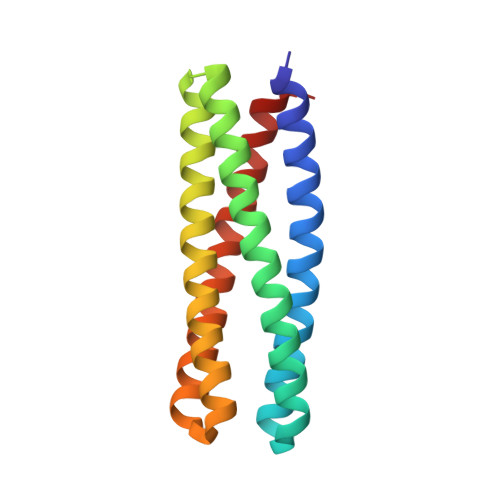De novo design of drug-binding proteins with predictable binding energy and specificity.
Lu, L., Gou, X., Tan, S.K., Mann, S.I., Yang, H., Zhong, X., Gazgalis, D., Valdiviezo, J., Jo, H., Wu, Y., Diolaiti, M.E., Ashworth, A., Polizzi, N.F., DeGrado, W.F.(2024) Science 384: 106-112
- PubMed: 38574125
- DOI: https://doi.org/10.1126/science.adl5364
- Primary Citation of Related Structures:
8TN1, 8TN6, 8TNB, 8TNC, 8TND - PubMed Abstract:
The de novo design of small molecule-binding proteins has seen exciting recent progress; however, high-affinity binding and tunable specificity typically require laborious screening and optimization after computational design. We developed a computational procedure to design a protein that recognizes a common pharmacophore in a series of poly(ADP-ribose) polymerase-1 inhibitors. One of three designed proteins bound different inhibitors with affinities ranging from <5 nM to low micromolar. X-ray crystal structures confirmed the accuracy of the designed protein-drug interactions. Molecular dynamics simulations informed the role of water in binding. Binding free energy calculations performed directly on the designed models were in excellent agreement with the experimentally measured affinities. We conclude that de novo design of high-affinity small molecule-binding proteins with tuned interaction energies is feasible entirely from computation.
- Department of Pharmaceutical Chemistry & Cardiovascular Research Institute, University of California, San Francisco, CA 94158, USA.
Organizational Affiliation:


















